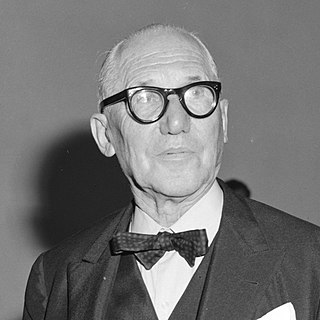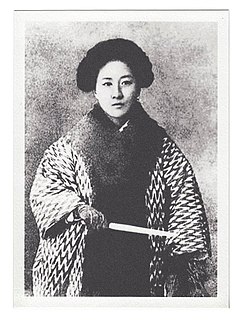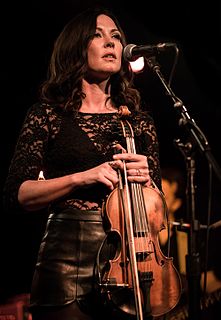A Quote by Le Corbusier
You don't start a revolution by fighting the state but by presenting the solutions.
Quote Topics
Related Quotes
You don't wanna know the sinner. You don't wanna know the killer. Because it's you. Television is stalling evolution. Medication is stalling evolution. Evolution is stalling revolution. Evolution, revolution. Collaboration, the start of revolution. My decision, the start of revolution. Revolution, the start of evolution. Revolution, evolution.
It was with the last revolution and the coming of INGSOC (Inglish/English Socialism) that the latest High learnt how to keep their position permanently - by cultivating ignorance among the other classes and by constantly surveying them through the Thought Police. Part of this strategy included the maintenance of a state of continual warfare, which Goldstein discussed in the third chapter. The three major powers were not fighting this perpetual war for victory; they were fighting to keep a state of emergency always present as the surest guarantee of authoritarianism.
Revolution is only truly revolution if it is a continuous struggle-not just an external struggle against an enemy, but an inner struggle, fighting and subduing all negative aspects which hinder or do damage to the course of the revolution. In this light, revolution is ... a mighty symphony of victory over the enemy and over oneself.
The word 'revolution' first brings to mind violent upheavals in the state, but ideas of revolution in science, and of political revolution, are almost coeval. The word once meant only a revolving, a circular return to an origin, as when we speak of revolutions per minute or the revolution of the planets about the sun.
The inherent tendency of the State is to concentrate, to narrow, and monopolize all social activities; the nature of revolution is, on the contrary, to grow, to broaden, and disseminate
itself in ever-wider circles. In other words, the State is institutional and static; revolution is fluent, dynamic.
The State is the curse of the individual... The State must go! That will be a revolution which will find me on its side. Undermine the idea of the State, set up in its place spontaneous action, and the idea that spiritual relationship is the only thing that makes for unity, and you will start the elements of a liberty which will be something worth possessing.
There are those, on the one hand, who hope to achieve the social revolution through the State by preserving and even extending most of its powers to be used for the revolution. And there are those like ourselves who see the State, both in its present form, in its very essence, and in whatever guise it might appear, an obstacle to the social revolution, the greatest hindrance to the birth of a society based on equality and liberty, as well as the historic means designed to prevent this blossoming.
When you think of power, you think the state has power. When you look at it in terms of revolution, in terms of the state, you think of it in terms of Russia, the Soviet Union, and how those who struggled for power actually became victims of the state, prisoners of the state, and how that led to the dissolution of the Soviet Union. We have to think of revolution much more in terms of transitions from one epoch to another. Talk about Paleolithic and Neolithic.
When you think of power, you think the state has power. When you look at it in terms of revolution, in terms of the state, you think of it in terms of Russia, the Soviet Union, and how those who struggled for power actually became victims of the state, prisoners of the state, and how that led to the dissolution of the Soviet Union. We have to think of revolution much more in terms of transitions from one epoch to another.






































